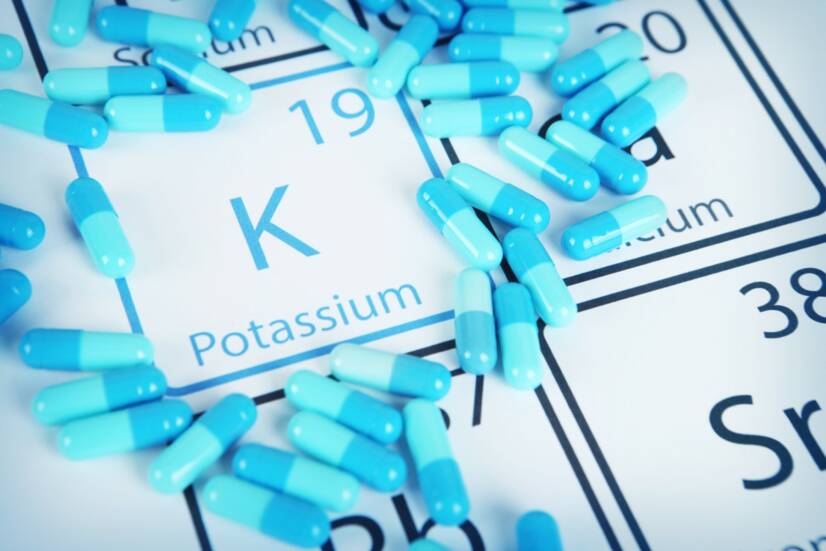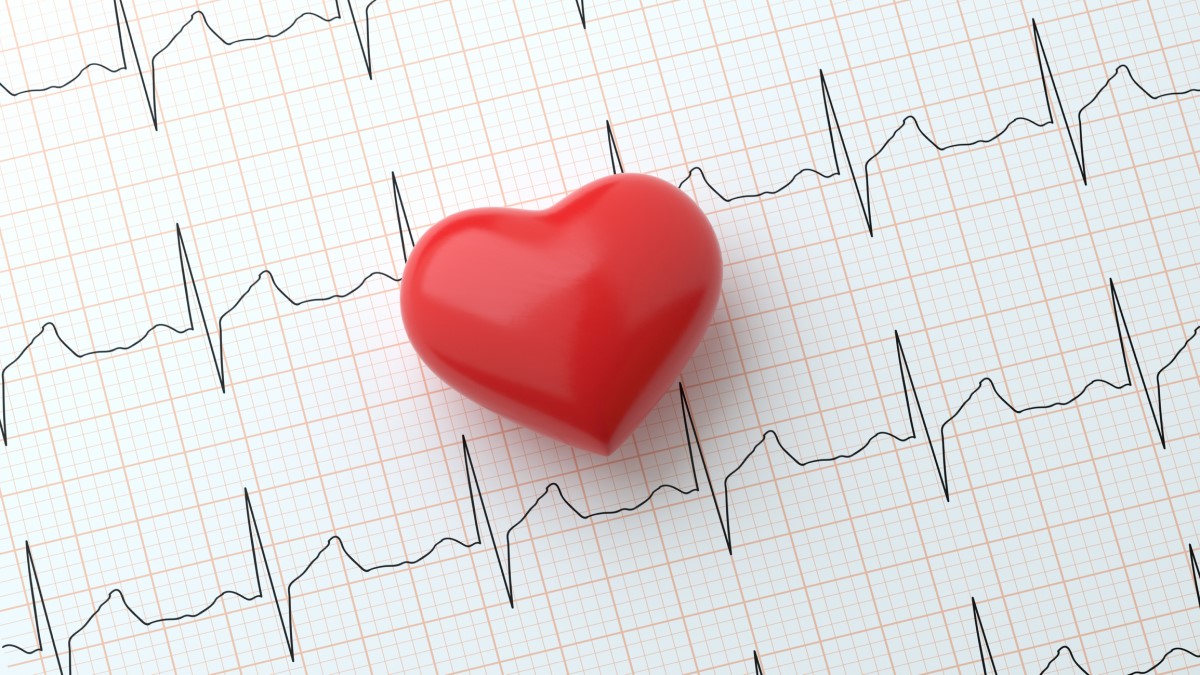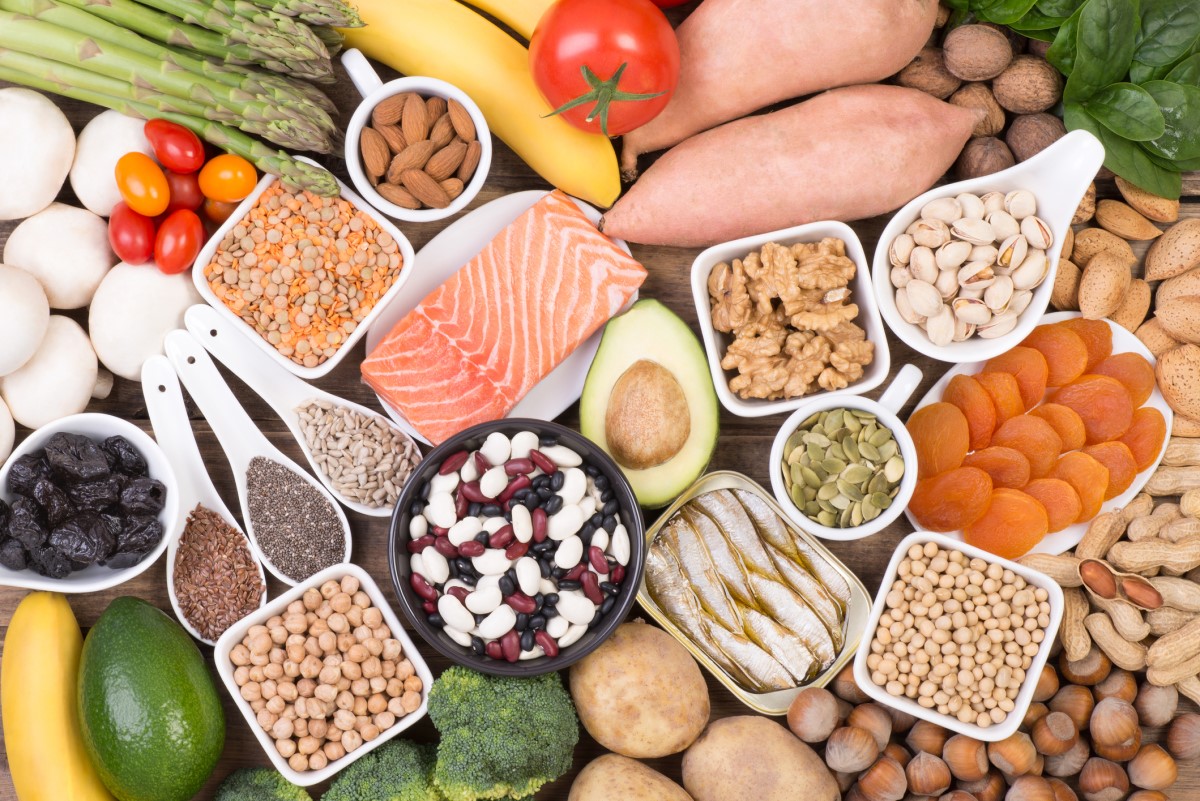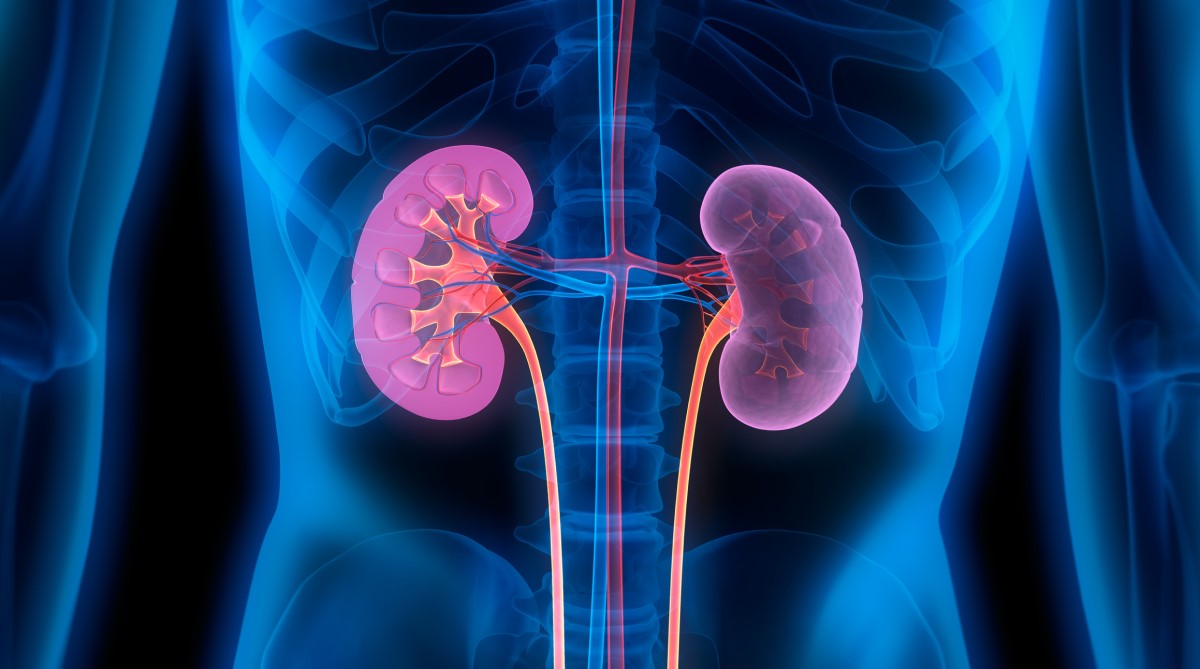- efsa.europa.eu - Dietary reference values for potassium
- healthline.com - What Does Potassium Do for Your Body? A Detailed Review, Ryan Raman
- netmeds.com - Potassium: Functions, Food Sources, Deficiency And Toxicity
- health.harward.edu - The importance of potassium
- ods.od.nih.gov - Potassium
- ncbi.nlm.nih.gov - Potassium Intake, Bioavailability, Hypertension, and Glucose Control, Michael Stone, Lisa Martyn, Connie M. Weaver + mdpi.com
- internimedicina.cz - Hypokalemia, doc. MUDr. Romana Ryšavá, CSc., Department of Nephrology, 1st Faculty of Medicine, Charles University in Prague
What do you need to know about the effects of potassium? Are changes in levels dangerous?

Everything you need to know about the effects of potassium. Can changes in potassium levels be dangerous?
Article content
Electrolytes have the ability to conduct an electric current, and our bodies use this "electricity" to control various biological processes. Therefore, low or high levels of potassium can significantly affect a large number of bodily functions.
How does potassium affect our bodies?
When should we increase our intake of potassium?
Are there any health risks associated with potassium?
In what processes of our body is potassium an important player?
The discoverer of potassium was Humphry Davy in 1807.
1. Signal transmission between nerve cells (intercellular communication)
The nervous system transmits information between our brain and the rest of the body in the form of nerve impulses.
Nerve impulses are generated by the movement of sodium ions into cells and the movement of potassium ions out of cells.
This movement of ions changes the tension in the cell and activates the nerve impulse. This in turn helps to regulate other processes in the body.
2. Regulation of muscle and cardiac activity
Regulation of muscle activity is also done by potassium and its involvement in the generation of nerve impulses.
Altered levels of potassium can affect the transmission of signals in the nervous system, thereby weakening muscle contractions.
Potassium is also important for maintaining a regular heart rhythm. Altered levels of this mineral can lead to irregular heart rhythms in some cases.

3. Regulation of fluid balance and blood pressure
In our body, 40% of water is found in what is called intracellular fluid. The rest is extracellular (outside the cells), for example in the blood and spinal fluid.
Potassium is the main electrolyte that influences the amount of water inside cells. It helps to maintain the balance of water retention and excretion from the body, in cooperation with another electrolyte, sodium.
High levels of sodium can promote an increase in blood pressure, especially in people who already have high blood pressure. A diet rich in potassium can therefore reduce blood pressure by helping the body to excrete excess sodium.
4. Regulating calcium excretion
Potassium can also help in the prevention of osteoporosis or kidney stones. This is done by the mechanism of reducing the concentration of calcium in the urine and its excretion from the body.
Kidney stones are an aggregate of material in which calcium is highly represented. Limiting its presence in the urine is therefore an advantage.
Simultaneous reduction of urinary calcium excretion may also be beneficial in osteoporosis, which is often associated with low levels of calcium in the body.
5. Digestion and acid-base balance
Potassium promotes the release of saliva and stomach acids, thereby aiding the digestion of food. It is also essential for the absorption of proteins, carbohydrates and the maintenance of acid-base balance.
How much potassium does our body need?
More than 90% of potassium is absorbed from food in the small intestine by passive diffusion. It is mainly excreted from the body in the urine, with smaller amounts in faeces and sweat.
Until the body's potassium reserves are depleted, excretion by the kidneys increases with increasing intake.
The total amount of potassium in the body of an adult is approximately 45 mmol/kg body weight (1 mmol = 39.1 mg potassium).
The normal concentration of potassium in the blood ranges from 3.6 to 5.0 mmol/l.
The table below shows the recommended daily intake of potassium for a healthy person
| Age | Men | Women |
| 0-6 months | 400 mg | 400 mg |
| 7-12 months | 860 mg | 860 mg |
| 1-3 years | 2000 mg | 2000 mg |
| 4-8 years | 2300 mg | 2300 mg |
| 9-13 years | 2500 mg | 2300 mg |
| 14-18 years | 3000 mg | 2300 mg |
| 19 years and over | 3400 mg | 2600 mg |
| Pregnancy | 2900 mg | |
| Breastfeeding | 2800 mg | |
Approximately 80% of the total amount of potassium in the body is stored in muscle cells. The remaining 20% is found in the liver, bone tissue and red blood cells.
Food sources
A healthy and balanced diet provides our bodies with enough potassium. The maximum possible intake of potassium from food in healthy people is not established.

The forms of potassium found in foods are mainly potassium phosphate, potassium sulphate and potassium citrate.
The following table lists selected foods rich in potassium
| Type of food (100 g) | Amount of potassium (mg) | Food type (100 g) | Amount of potassium (mg) |
| Dried mushrooms | 2969 | Avocado | 485 |
| Dried apricots | 1162 | Spinach | 466 |
| Pistachios, unsalted | 1025 | Bananas | 388 |
| Lentils, cooked | 937 | Salmon, fillet with skin | 363 |
| Poppy | 832 | Kiwi | 316 |
| Dried raisins | 825 | Carrots, raw | 287 |
| Chickpeas, cooked | 800 | Tomatoes, fresh | 280 |
| Cocoa powder | 712 | Cabbage, white, raw | 263 |
| Almonds with skin | 700 | Grapefruit | 234 |
| White beans, cooked | 640 | Raspberries (not frozen) | 224 |
| Sunflowers, shelled | 603 | Oranges | 197 |
| White potatoes, baked (without peel) | 544 | ||
Who is at risk of potassium deficiency?
Potassium deficiency, or hypokalaemia, can lead to a number of health problems. However, it is not common for a healthy person with good eating habits to suffer from this deficiency.
Decreased potassium levels in the body occur mainly when potassium losses are increased.
This can occur in people who suffer from e.g.:
- diarrhoea
- inflammatory bowel disease (e.g. ulcerative colitis, Crohn's disease)
- intense vomiting
- excessive sweating
- magnesium deficiency (hypomagnesaemia)
- folic acid deficiency
- selected endocrinological diseases, e.g. hyperaldosteronism
- chronic kidney disease
- use of certain medications, especially laxatives, glucocorticoids and selected types of diuretics
- alcoholism
- starvation and inappropriate diet
Clinical manifestations of potassium deficiency
Manifestations of mild hypokalaemia:
- Constipation, flatulence
- Fatigue, malaise
- Muscle weakness, cramps in limbs
- Nausea
Manifestations of severe hypokalaemia - blood level below 2.5mmol/l:
- High production of very dilute urine (polyuria)
- Muscle paralysis, constricted breathing
- Cardiac arrhythmias, palpitations, high blood pressure (hypertension)
- Glucose intolerance
- Confusion
Mild forms of hypokalemia can be easily managed by increased consumption of potassium-rich foods.
However, severe hypokalaemia is a life-threatening condition in which careful monitoring of the patient and potassium supplementation with appropriate preparations is necessary. At the same time, the cause of the hypokalaemia must be identified and treated.
Hypokalaemia is a blood potassium level of less than 3.5 mmol/l.
Can there be too much potassium in the body?
Potassium intake in excess of the body's needs does not usually cause any problems.
However, a problem can occur if the kidneys do not excrete the excess potassium for various reasons. Such a condition can lead to hyperkalaemia (a blood potassium level above 5.0mmol/l).

Mild hyperkalaemia is usually asymptomatic.
In severe hyperkalaemia, some symptoms are similar to hypokalaemia.
This is a life-threatening condition requiring medical attention.
Clinical manifestations of severe hyperkalaemia - blood level above 7.0mmol/l:
- Heart palpitations, palpitations, cardiac arrhythmias, very low blood pressure (hypotension).
- Feeling of burning and tingling in the extremities
- Muscle paralysis, difficulty breathing
Therapy of severe and acute hyperkalemia consists of stabilizing cardiac function and breathing.
It is also important to remove potassium from the body, e.g. with diuretics, special calcium preparations and, in severe cases, haemodialysis. The underlying cause is also sought and then treated appropriately.
It is unlikely that a healthy person can overdose on dietary potassium. However, it can occur through excessive and incorrect use of potassium supplements.
Hyperkalaemia is defined as a blood potassium level greater than 5.6 mmol/l.
For whom is elevated potassium dangerous?
People who are at risk of hyperkalaemia with increased potassium intake include those who suffer from:
- chronic kidney disease
- Type I diabetes
- congestive heart failure
- liver disease
- adrenal insufficiency (adrenal insufficiency, Addison's disease)
Hyperkalaemia is also a risk for people taking selected groups of drugs:
- angiotensin converting enzyme (ACE) inhibitors (e.g. active ingredient captopril, enalapril)
- angiotensin receptor blockers (e.g. losartan, candesartan)
- potassium-sparing diuretics (e.g. spironolactone, eplerenone)
The spontaneous use of potassium-containing dietary supplements is not recommended in these cases unless otherwise advised by your doctor.
To avoid the risk of hyperkalaemia, the physician may advise the patient to follow a potassium-restricted diet.
Cooking reduces the potassium content of vegetables and fruit by 50 %.
When to take potassium supplements?
Potassium is often present as potassium chloride in dietary supplements available without a prescription. However, many other forms are also used - citrate, phosphate, aspartate, bicarbonate and potassium gluconate.
These supplements usually contain no more than 100 mg of elemental potassium per dose. They should be avoided by anyone at risk of developing hyperkalaemia.
Sport and muscle cramps
Potassium supplements should be taken if you are a healthy active athlete and experience muscle cramps. An effervescent form of potassium and magnesium or an ionic drink may be an acute one-off aid.
Such preparations also contain other ingredients lost through excessive physical exertion and sweating, such as sodium.
However, a varied and balanced diet is particularly recommended as a prevention against muscle cramps. At the same time, it is important not to neglect quality stretching and recovery.
If muscle cramps recur and regimen measures have not helped, regular use of a combination of potassium, magnesium and pyridoxine (vitamin B6) as recommended by a pharmacist or doctor is an option.

Intense diarrhoea or vomiting
Replenishing potassium, as well as other electrolytes, is also necessary in cases of intense diarrhoea or vomiting. Due to the difficulty of eating, it is advisable to administer so-called rehydration solutions in these conditions.
Diet with sodium restriction
If you suffer from high blood pressure, you have probably been advised to follow a sodium-restricted diet. In this case, it is also possible to use table salt substitutes.
These contain potassium chloride instead of sodium chloride. However, check with your doctor or pharmacist before using them.
Interesting resources
Related










